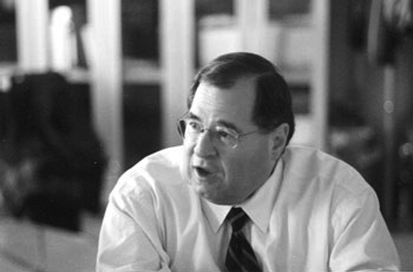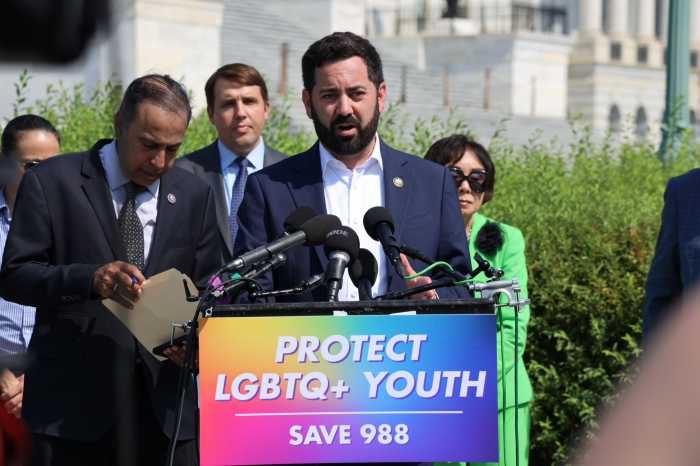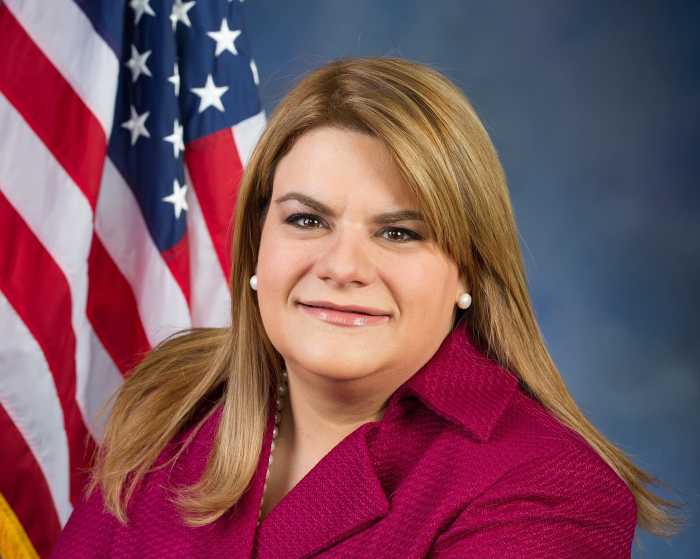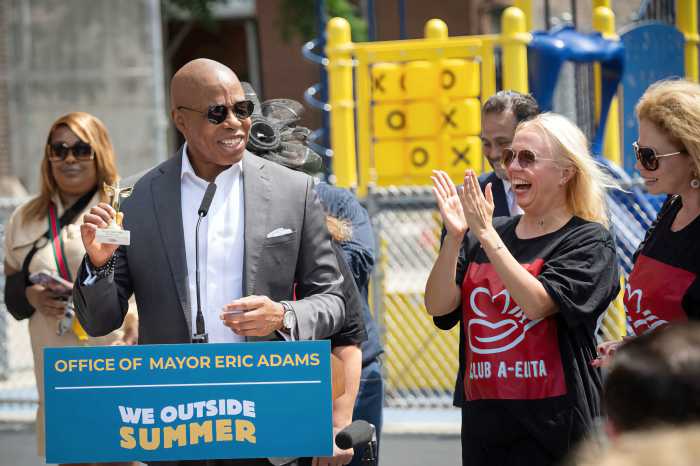West Side congressman argues gay rights can only move if GOP grip on agenda broken
Ask Congressman Jerrold Nadler a question that assumes the Democrats will take control of the U.S. House of Representatives this fall and he begins his answer with, “Your mouth to God’s ears.”
In Nadler’s view, a Democratically-controlled Congress could assure that legislation desired by progressives gets on the agenda and, for the queer community, having Democrats in charge is the only way that gay-friendly laws will advance.
“I’d be surprised if this Congress would do anything for gay rights in any way,” Nadler said during a nearly two-hour interview at his Manhattan office. The Republicans are more likely to use the gay community as an issue to turn out their conservative base in November’s midterm elections.
“This Congress, before this election, they’re getting desperate,” Nadler said on April 21. “When you get desperate you look for wedge issues. I expect them to bring back gay marriage.”
In polls, Republicans from the president to senators and representatives are viewed unfavorably by voters and they are seen as leading the nation in the wrong direction. Whether that means that voters are unhappy with their individual senators or representative is unclear. Even Nadler will not guarantee a Democratic victory on November 7.
“I think it’s at least a 50-50 chance,” was as far as he would go on the question.
Nor would such a victory mean that gay-friendly laws would sail through Congress. There are Democrats, like Nadler, who have long been allies of the lesbian, gay, bisexual, and transgender community. Nadler has consistently won a 100 percent rating from the Human Rights Campaign, the nationwide gay lobbying group.
Most recently, Nadler sponsored the Uniting American Families Act that would require that U.S. immigration law treat same-sex couples and opposite-sex couples equally, the Anti-bullying Campaign Act that would “assist states in establishing… anti-harassment programs” and includes protections based on sexual orientation and gender identity, and the Equal Access to Social Security Act that would grant same-sex couples the same Social Security benefits that are given to opposite-sex married couples.
Then there are Democrats who talk a good gay game, but oppose same-sex marriage and support the federal Defense of Marriage Act.
“People like me, who have sponsored these kinds of bills, will sponsor them,” Nadler said. “I assume we’ll get at least a hearing and a vote. I won’t guarantee that we’ll win all the votes… I guarantee you we won’t be going backwards… It will be a much friendlier atmosphere.”
Friendlier because the Democrats will control the agenda and that is the game on Capitol Hill.
“Ninety-nine percent of what occurs in Congress does not occur because there’s a vote,” Nadler said. “It occurs because you control the agenda. Ninety-nine percent of the bills that are defeated are defeated not by losing on the floor, but by never being put on the agenda.”
But are the Democrats doing enough to win back the House and the Senate?
“I think so,” Nadler said. “We are offering real alternatives. Unfortunately, it’s not getting out into the press very much… When you don’t have the president in that bully pulpit or the majority in either house it’s very hard to get heard.”
Nadler will certainly win easily. As of March 31, he has just under $750,00 in cash for his reelection campaign in the fall, according to the Center For Responsive Politics, a Washington, D.C.-based group that tracks campaign financing. Nadler won his 2004 race with 80 percent of the vote.
First elected in 1992, Nadler represents New York’s Eighth Congressional district that stretches from Manhattan’s Upper West Side, down through Lower Manhattan, and into Brooklyn where it includes neighborhoods such as Borough Park, Coney Island, Bay Ridge, and Bensonhurst. He was elected to Congress after serving 16 years in the state Assembly.
Nadler could serve as a model for some of those other Democrats. He represents some of the city’s most liberal voters and voters who are more culturally conservative. He believes the party is advancing.
“We are moving the party along here,” he said. “I think it’s come a long way… In 1988, the Democratic candidate for president, Mike Dukakis, wouldn’t support adoption by gay couples. Most liberal Democrats thought that people who raised that issue were wrong to raise it… Today, you couldn’t get a self-respecting candidate for president on the Democratic side who wouldn’t advance that issue.”
The priorities concerning gay-friendly legislation in a Democratic Congress are not yet clear.
“I would certainly sit down with the national gay groups, with the national women’s groups, and discuss with them what they think the priorities should be,” Nadler said. “Probably, off the top of my head, having not really thought about this because we have to win first, probably either the civil rights bill or the American families act or maybe both.”
Repealing DOMA or Don’t Ask, Don’t Tell, two Clinton-era policies that are seen as particularly noxious in the lesbian and gay community, might not happen for some time.
“I’ll think we undo Don’t Ask, Don’t Tell before we undo [DOMA],” Nadler said. “I don’t think there is any great pressure to undo [DOMA] until something comes up in court.”
Aside from lobbying, voting, and volunteering, the queer community’s job is “visibility at home,” Nadler said. It is what legislators hear from the voters back home that makes the difference.
Nadler said “Anybody who is active in anything at home who goes to see their Congressman… and says ‘By the way Congressman, take another look at the gay rights bill’ is having an impact.”
gaycitynews.com



































